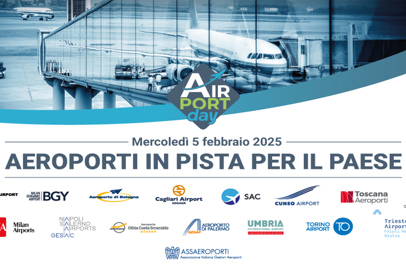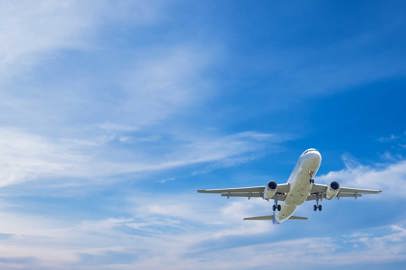26 March 2020
IATA: European airlines revenue losses mount - urgent government support required
Governments step up their efforts to aid the industry
The International Air Transport Association (IATA) strengthened its call for urgent action from European governments to provide financial relief to airlines. The latest IATA scenario for potential revenue loss by European carriers is US$76 bn and passenger demand (measured in Revenue Passenger Kilometers) is projected to be 46% below 2019 levels. A decline of this magnitude puts at risk about 5.6 million jobs and $378bn in GDP supported by air transport.
Some of the impacts at national level include:
United Kingdom
113.5mn fewer passengers resulting in a $21.7bn revenue loss, risking almost 402,000 jobs and around $32.7bn in contribution to the UK economy.
Spain
93.7mn fewer passengers resulting in a $13bn revenue loss, risking 750,000 jobs and $49.4bn in contribution to Spain’s economy.
Germany
84.4mn fewer passengers resulting in a $15bn revenue loss, risking 400,000 jobs and $28bn in contribution to Germany’s economy.
Italy
67.7mn fewer passengers resulting in a $9.5bn revenue loss, risking 256,000 jobs and $67.4bn in contribution to Italy’s economy.
France
65mn fewer passengers resulting in a $12bn revenue loss, risking 318,000 jobs and $28.5bn in contribution to France’s economy.
United Kingdom
113.5mn fewer passengers resulting in a $21.7bn revenue loss, risking almost 402,000 jobs and around $32.7bn in contribution to the UK economy.
Spain
93.7mn fewer passengers resulting in a $13bn revenue loss, risking 750,000 jobs and $49.4bn in contribution to Spain’s economy.
Germany
84.4mn fewer passengers resulting in a $15bn revenue loss, risking 400,000 jobs and $28bn in contribution to Germany’s economy.
Italy
67.7mn fewer passengers resulting in a $9.5bn revenue loss, risking 256,000 jobs and $67.4bn in contribution to Italy’s economy.
France
65mn fewer passengers resulting in a $12bn revenue loss, risking 318,000 jobs and $28.5bn in contribution to France’s economy.
To minimize the sweeping damage across the European economy that these losses would have, it is vital that governments step up their efforts to aid the industry. Some European governments have already acted, including Norway, Sweden, Finland, Spain, and Italy. But more help is needed. IATA is calling for a combination of:
direct financial support,
loans, loan guarantees and support for the corporate bond market
tax relief.
direct financial support,
loans, loan guarantees and support for the corporate bond market
tax relief.
“The air transport industry is an economic engine, supporting up to 12.2 million jobs across Europe and $823 billion in GDP. Every job created in the aviation industry supports another 24 jobs in the wider economy. Governments must recognize the vital importance of the air transport industry, and that support is urgently needed. First, this will keep airlines financially viable during the present lockdown, preserving jobs, maintaining essential connections to repatriate citizens, and carrying life-saving air cargo supplies. Secondly, this would avoid broad economic damage by ensuring that airlines can rapidly scale-up operations when travel restrictions are lifted, jump-starting the European and global economies,” said Rafael Schvartzman, IATA’s Regional Vice President for Europe.
In addition to financial support, IATA called for regulators to provide relief measures. Key priorities in Europe include:
An urgent temporary amendment to the EU261 passenger rights regulation. Short-term flexibility is needed immediately. Permitting the use of vouchers instead of refunds, as has been allowed for some tour operators, would give airlines breathing space to repair cash flows.
Providing a package of measures to ensure air cargo operations, including fast track procedures to obtain overflight and landing permits, exempting flight crew members from 14-day quarantine, and removing economic impediments (overflight charges, parking fees, and slot restrictions).
An urgent temporary amendment to the EU261 passenger rights regulation. Short-term flexibility is needed immediately. Permitting the use of vouchers instead of refunds, as has been allowed for some tour operators, would give airlines breathing space to repair cash flows.
Providing a package of measures to ensure air cargo operations, including fast track procedures to obtain overflight and landing permits, exempting flight crew members from 14-day quarantine, and removing economic impediments (overflight charges, parking fees, and slot restrictions).
“Some regulators are taking positive action. We are grateful to the European Council for insisting on a full-season waiver to the slot use rule. This will enable airlines and airports greater flexibility for this season and greater certainty for next summer. But there is more to do on the regulatory front. Amendments are urgently needed to give more flexibility for EU 261. And they must take measures to keep air cargo moving,” said Schvartzman.
Edited by Alisè Vitri
Text source: © IATA Press Office
Visual: Sisterscom.com / Shutterstock
All right reserved. Copyright © Sisterscom.com
You might be interested in
Useful Info

Authority
Olbia Airport will be named after Prince Karim Aga Khan IV
ENAC pays tribute to the founder of modern tourism in Costa Smeralda: a key figure in the history of aviation and the development of Sardinia
Useful Info

Authority
Airport Day
The national event, organized by Assaeroporti, is held on February 5 to celebrate the strategic role of the 17 participating Italian airports
Useful Info

Authority
ENAC: reorganization and future challenges of air transport
At the 2025 Meeting, a discussion on innovation, sustainability, innovative air mobility and quality of services, in line with the country's strategic objectives

